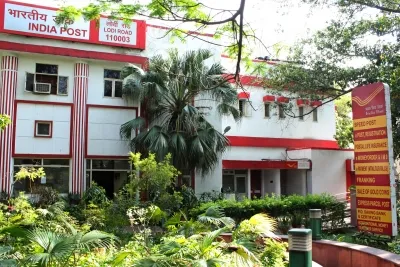How Did the Counter Intelligence Wing of J&K CID Rescue Two Teenagers from Terrorism?

Synopsis
Key Takeaways
- Online radicalization poses a significant threat to youth.
- Timely intervention can prevent recruitment into terrorism.
- Community cooperation is vital in combating extremism.
- Digital literacy and responsible engagement are essential.
- Cyber intelligence plays a crucial role in security operations.
Srinagar, Oct 28 (NationPress) - The Counter Intelligence Kashmir wing (CIK) of Jammu and Kashmir CID announced on Tuesday that it successfully rescued two teenagers from the clutches of terrorism, which was facilitated through online radicalization.
A statement released by the intelligence unit proclaimed, "CIK has thwarted an online radicalization scheme and has shielded two adolescent boys from falling into a terror trap."
CIK has once again exhibited its remarkable professional expertise, cyber intelligence capabilities, and community outreach by dismantling a digital radicalization network that was operating across various social media platforms.
"The prompt action not only dismantled the propaganda machinery of a terrorist group but also secured the safety of two impressionable young boys from being recruited into terrorism," the statement elaborated.
Acting on precise intelligence and extensive cyber monitoring, CIK pinpointed two radical social media accounts - 'faithful_warrior57' and 'Gurkboru.08' - which were actively glorifying terrorism and disseminating extremist content.
These profiles were persistently sharing propaganda materials, including audio clips and digital files of known terrorists, aimed at inciting discord, fostering secessionist sentiments, and luring impressionable youth towards violent extremism.
Through a comprehensive technical analysis, the individuals behind these accounts were identified as: Hashim Mashood Lone, aged 17, from Khawjabagh, Maloora, and Mohammad Hazik Ahanger, aged 15, from Railway Colony, Nowgam.
Both were located, detained for questioning, and confirmed to be minors. A digital forensic examination of Hashim's mobile device confirmed his identity as the user of 'Gurkboru.08', revealing that he was spreading terror-related content under the supervision of an online handler.
"Investigations further revealed that he had been utilizing encrypted communication tools and VPNs to maintain covert communication with cross-border handlers. The inquiry subsequently traced the online handler, who operated under the alias 'Saqib' (real name Ahmad Salar), a Pakistan-based propagandist associated with The Resistance Front (TRF). Salar was orchestrating a sophisticated online indoctrination campaign, leveraging social media to manipulate impressionable youth through ideological grooming, false promises, and glorification of terrorist acts," the statement noted.
The second juvenile, Hazik, who operated the handle 'faithful_warrior57', was similarly swayed by the same handler.
Digital traces indicated instructions, emotional manipulation, and ideological conditioning intended to draw both minors deeper into extremist networks.
"Through meticulous coordination, superior cyber analytics, and prompt operational execution, CIK effectively dismantled the network, successfully preventing the recruitment of two juveniles and neutralizing an emerging radicalization threat that could have jeopardized community safety," the statement emphasized.
Acknowledging the social aspect of this threat, CIK organized joint counseling sessions with the families of the juveniles, community leaders, and local religious scholars.
"These sessions aimed to educate the youth and their guardians about the serious consequences of radicalization and the significance of responsible digital engagement. This initiative highlighted CIK's compassionate approach, merging operational excellence with social responsibility and enhancing community cooperation against extremist exploitation," the statement concluded.










